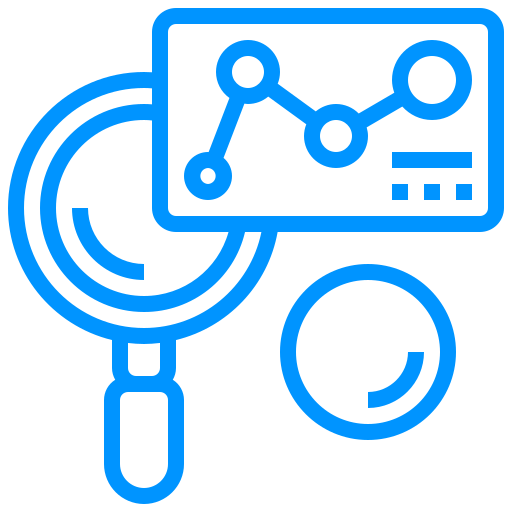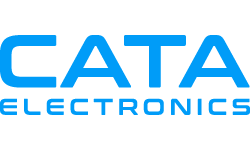Diesel Ecm Service
Over 25 years of industry experience.
Diesel Repair Services

Diesel Diagnostics
We provide full diagnostics on modules with our proprietary ECM testing equipment.
Ecm Repair/Exchange
We offer a 24-hour turnaround on all repairs or exchanges to get your vehicle back on the road.
Diesel Programming
We have the capability to program engine control features and parameters as well as engine power rerates.
frequently asked questions
The ECM, or Engine Control Module, on a diesel engine is a crucial component that functions as the brain of the engine. It is an onboard computer designed to manage and control various aspects of the engine’s operation. Here are some of the key functions of the ECM in diesel engines:
Fuel Injection Control: The ECM precisely controls when and how much fuel is injected into the combustion chambers. In modern diesel engines, this process is critical for optimizing performance, fuel efficiency, and emissions.
Air Management: It regulates the air intake via the control of turbochargers and EGR (Exhaust Gas Recirculation) systems, which helps in managing the engine’s air-to-fuel ratio and reducing emissions.
Emission Control: The ECM plays a vital role in controlling the emissions produced by the engine. It manages systems such as the Diesel Particulate Filter (DPF), Selective Catalytic Reduction (SCR), and others that help reduce the levels of pollutants released into the environment.
Engine Protection: It monitors various engine parameters such as temperature, pressure, and rotational speed to prevent engine damage. The ECM can modify engine operations or alert the driver if it detects conditions that could lead to engine damage.
Diagnostics: The ECM continually checks the engine and its related systems for faults. It stores diagnostic trouble codes (DTCs) that can be accessed with diagnostic tools to help technicians troubleshoot issues.
Optimization and Efficiency: It continuously adjusts engine parameters for optimal performance, considering factors like engine load, temperature, and altitude.
The ECM uses a network of sensors that provide real-time data on things like air intake, fuel mixture, and exhaust quality. Based on this data, it makes adjustments to improve performance, efficiency, and reduce emissions. The proper functioning of the ECM is vital for the overall health and efficiency of a diesel engine.
Repairing an ECM yourself is possible, but it requires a good deal of technical skill and understanding of electronic systems. Since ECMs are intricate and sensitive, it’s generally recommended that only those with specific experience in automotive electronics or a background in electronic repair undertake such a task. If you lack this experience, it’s safer and more efficient to consult a professional.
Yes, a bad ECM can often be repaired. The feasibility of repair depends on the specific issues and the extent of the damage. Common issues like faulty wiring, burned-out components, or software glitches can often be fixed. However, if the ECM is severely damaged, such as from water or physical impact, it might be beyond repair and require replacement.
Replacing an without programming is generally not advisable. The “ECM replacement,”needs to be programmed to ensure it communicates correctly with the vehicle’s other systems. Programming involves installing the proper software and sometimes updating it to ensure compatibility with the vehicle’s make, model, and other specifications.
Typically, locksmiths do not program ECMs. Programming an ECM is usually more complex than programming car keys or dealing with locks and is generally handled by automotive technicians or mechanics who specialize in electronic systems and advanced diagnostics.
You can buy a used ECM, and it can be a cost-effective solution. However, it’s crucial to make sure that the used ECM is compatible with your vehicle. It must also be in good working condition and ideally should be checked or reprogrammed by a professional to ensure it functions as expected with your vehicle’s setup.
Fixing ECU (ECM repair,” “ECM replacement,”) problems typically involves a few steps:
Diagnosis: Use a diagnostic tool to read and interpret the error codes from the ECU.
Troubleshooting: Based on the codes, pinpoint the issues—whether they’re hardware or software-related.
Repair or Replace: Address the specific problems which might include replacing faulty sensors, repairing wiring, or updating/flashing software.
Testing: Once repairs are made, test the vehicle to ensure that the issue is resolved and the ECU is communicating properly with all vehicle systems.
Choosing the right ECM for your vehicle involves knowing the vehicle’s make, model, year, and engine type. Each vehicle requires a specific ECM with a matching part number. This information can typically be found on the existing ECM, in the vehicle’s repair manual, or by consulting with a dealership or auto parts expert.
Bypassing an ECM module is generally not recommended as it is integral to the vehicle’s operation, controlling critical functions such as fuel injection, ignition, and more. Attempting to bypass an ECM can lead to vehicle performance issues, increased emissions, and even damage to the vehicle’s engine or other components.
Yes, a faulty ECM (Engine Control Module) can indeed drain the battery in a vehicle. This can happen in several ways:
Continuous Operation: If the ECM develops a fault, it might not enter the “sleep” or “shutdown” mode as it normally would when the vehicle is turned off. Instead, it continues to draw power, leading to battery drain.
Short Circuits: A malfunctioning ECM can cause short circuits within the vehicle’s electrical system, leading to excessive current draw, which can deplete the battery.
Erratic Behaviors: An ECM with internal faults might send incorrect signals to various components like relays or solenoids, causing them to remain activated (or energized) when they shouldn’t be. This constant activation can drain the battery.
Faulty Relays: Sometimes, the problem isn’t the ECM itself but components associated with it, like ECM-controlled relays. A stuck relay can cause continuous power drain even when the engine is off.
If a vehicle experiences battery drain and you suspect the ECM, it’s advisable to have it checked by a professional. They can perform diagnostic tests to determine if the ECM is the root cause or if another issue might be responsible. Detecting and fixing ECM-related problems early can prevent further damage to the vehicle’s electrical and engine systems.
